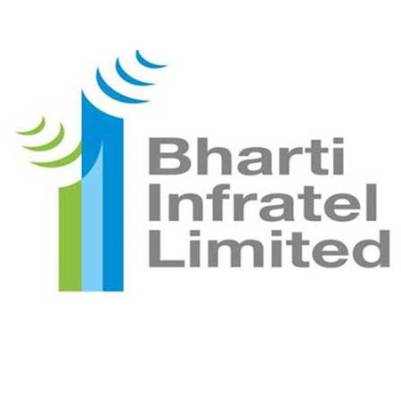  Bharti Infratel, the tower unit of Bharti Airtel, expects to complete its merger with Indus Towers in the first quarter of the new financial year, starting April 1, 2019. The company's management, in an analyst meet, also chalked out the new growth areas which include fibre sharing, small cells, data centres and wi-fi offloading.
The “deal is expected to be completed latest by April-May-19,” Bank of America Merrill Lynch said in a report.
Anlaysts said that while the merger may drive profitability and lower capex for the combined entity, the benefits are limited. “We believe the two companies already operate on a large scale and had practically no overlap in terms of areas of operations. Hence, merger benefits will be marginal,” said Edelweiss in its report.
The Infratel stock closed 2.6% lower at Rs290.75 on the BSE Wednesday.
The merger to create the largest tower firm in India is awaiting regulatory approvals from National Company Law Tribunal (NCLT) and the telecom department. Analysts expect the two major telcos – Bharti Airtel and Vodafone Idea – who will co-own the merged entity to bring down their respective stakes to strengthen their respective balance sheets.
“Bharti and Vodafone will have equal governance and management rights in the merged entity with no lock-in which should pave the way for eventual independence,” said UBS in its report. The brokerage company added that the merger is expected to be 14-16% accretive to earnings per share (EPS) for Infratel, along with improvement in capital structure and return ratios.
Last year, Bharti Airtel, erstwhile Idea Cellular and Vodafone Group agreed on merger of Indus Towers and Bharti Infratel to create the largest mobile tower operator in the world outside China. It is estimated to have 163,000 towers across 22 telecom service areas in India.
At present, Indus Towers is jointly owned by Bharti Infratel (42%), Vodafone (42%), Aditya Birla’s Idea group (11.15%) and Providence (4.85%). After the merger, Bharti Airtel and UK’s Vodafone Plc are set to hold 37.2% and 29.4% stakes, respectively, in the combined tower entity.
Infratel’s management is optimistic that growth of mobile data could lead to demand for additional tenancy, which in turn will add to opportunities for the tower firm. “Management expects strong mobile data growth to lead to tenancy demand. Demand could come across macro towers for coverage and densification in the near term, and through small cells over long term,” said Credit Suisse in its report.
The analysts of the brokerage firm also highlighted that the company’s management estimates the top three telcos to cross 300,000 tenancies respectively from a current 180,000-220,000 each.
In the longer term, the company sees multiple new growth opportunities - fibre sharing, small cells, data centres, wi-fi offloading, among others. Its strong balance sheet position would be handy for inorganic growth into these opportunities.
The Sunil-Mittal led tower company is also mitigating pricing risk arising from renewal of large chunk of tenancies between FY20-23 by offering telcos similar Master Services Agreements (MSA) terms provided that the operators renew at least 33% of tenancies expiring in any given year for a period of at least 5 years, said UBS.
Brokerage firm Jefferies estimates that pressures will continue on tower firms as telcos remain under stress and expects “margins to see gradual moderation as increments and loading charges are negotiated”. |